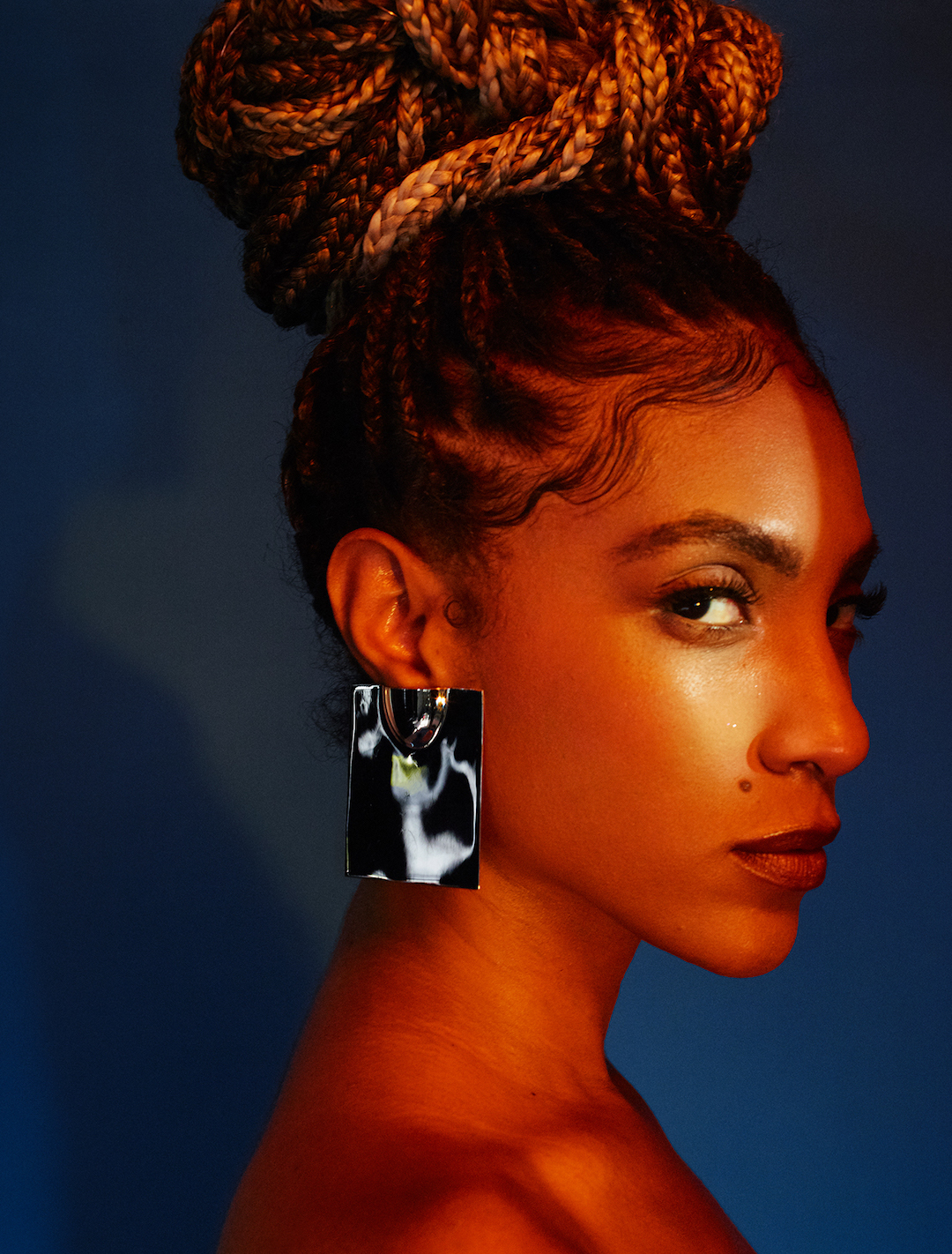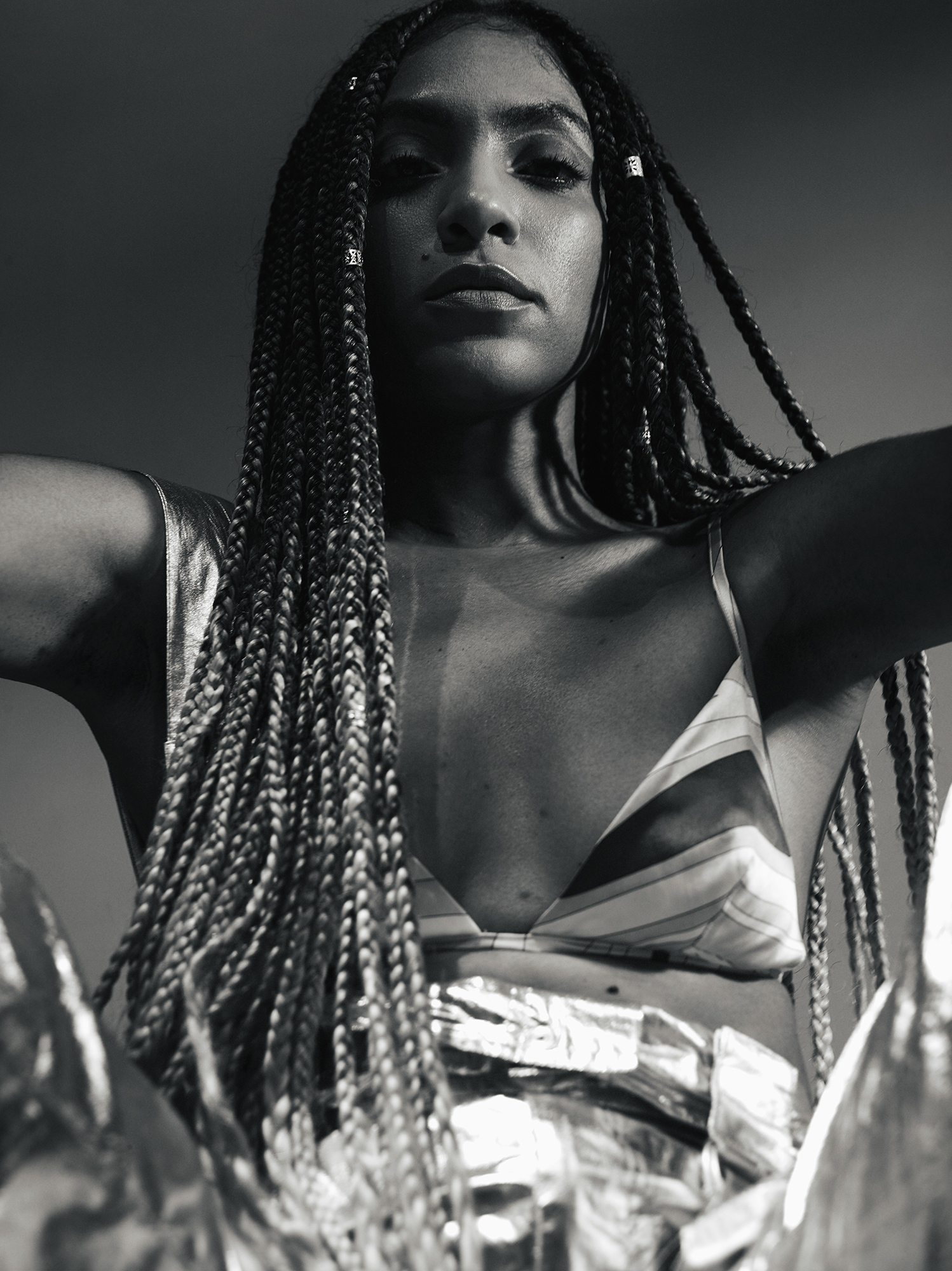How Naomi Cowan Is Channeling Her Fears Into Her Music
Cowan teaches us how to tap into our own inner Star Girl

We’ve all been here before. Naomi Cowan was at a friend’s birthday dinner, at a restaurant with a too-many-star-rating past her budget. Amongst the champagne laughter and clinking glasses, a cold sweat hits when she realizes she can’t even afford an appetizer. At this time, the Caribbean-pop wonder girl we know and love, with her shimmering harmonies and her heart-warming vocals, was not a performing musician. She was living paycheck to paycheck, working for a receding tech company in Toronto. Cowan’s heart always belonged to music, as she grew up in Jamaica literally on tour buses and the backstage of her parents’ reggae concerts. But her luminescent melodies and lyrics stayed locked behind closed doors. And her fear swallowed the key. This is a fear that rusts the engines of so many artists, leaving us stalled at the intersection of our passion.
“My mental health and hormones were out of wack. My body was telling me, ‘You’re not being true to yourself. You’re not whole. What is going to make you feel satisfied when you look back on your life when you’re 60?” So she devised a plan. “I wrote down everything that scared the crap out of me. And then paired it with the worst case scenario.” Valid fears, like what if they don’t like my voice? What if they hate my music? Rather than looking to outward guidance, she went inward, to her nine year old self. From here she created, Star Girl, Cowan’s first full-length album released this past July. The album sizzles with reggae revival and lusty R&B. Cowan’s lyrics cover a constellation of themes, all glittering from the same place of vulnerability.
“I just started to go back to the moments of my life where I felt the most powerful. I found myself as a child, running track and field, as class president, as a leader. And onstage. And that’s when it hit me. I was like, “Oh my god I have to find a way to be a full time artist, because that’s where I feel the most powerful, the most like myself.”
In an exclusive interview with V, Cowan details her latest project, overcoming fears, and her Jamaican roots.

V MAGAZINE: You’ve said you have a tight-knit group of friends who are creatives, so you all can empathize with the hectic schedule. Are most of the people in your inner circle artists?
NAOMI COWAN: Yeah, actually that’s something I am intentional about. I focus a lot on authentic friendships with creatives, because they understand and they help you get through the areas of this journey that maybe the average person may not get. One of my biggest prayers is that I will be surrounded by great people. People with big hearts, people with good intentions, pure intentions. I always just ask the universe,”Please just bring me the right people.” It’s never about, ‘Oh my god I want to be connected to this person because they’re famous and influential’ or whatever.
V: That is a beautiful mentality. It sounds like your core value is authenticity. You are not willing to use people as stepping stools to get further. Your number one is authentic relationships that stimulate you. Does that sound about right?
NC: Yes! I use that word almost too often. Authenticity. You know, like every time someone asks me about my songwriting, or they want to know about the choices I’m making or the direction I’m going, I always say, “Whatever feels authentic to me.” I feel like the artists that we see out there that are really killing it, it’s because they are constantly fighting to stay true to who they are. I’m really intentional about that.
V: Let’s start at the beginning. How do you think growing up with well respected musicians as parents, and touring with them affected you?
NC: In Jamaica we have this saying “I’m not too frightened.” So, in other words, I’m not too distracted by the things that come along with being a musician. Like the attention that you get, or the recognition, because I saw it happening around me from a young age. I don’t think I understood what upbringing I had until I left home and saw that, Okay, not everybody got to meet these Jamaican celebrities and sit backstage at massive concerts, and fall asleep on studio floors to the sound of live music. So through my upbringing, it has made me much more humble. Because I don’t feel defined by an article or a review, or a record. I feel I should be defined as who I am, how I treat the people around me, and the character that I am building.
V: When did you realize you wanted to be a musician?
NC: I’ve always known, because as far as I remember, I’ve always loved the stage. I performed for my family or at school, and I was always involved in all sorts of activities and pageants. But when I went to high school, I started getting very self-conscious. And looking back, it was definitely because of my mental health affecting me. I was getting really anxious of what people thought of me, really scared about my future, really scared about what was going to work for me. I went to a very academic high school in Jamaica where most of my classmates wanted to be doctors and lawyers and so on. So I felt pressured to do something that made more sense versus following my heart. It took me a while to make that decision.

V: How did you overcome this fear?
NC: I was working at a tech company in that was not getting as much funding as they were anticipating. One day, my boss asked me, “Naomi, what is it that really makes you happy?” And I said, “I love my music.” And there was a pause, and he said, “So why don’t you just do that? You’re not married, you don’t have a mortgage. Why don’t you just move back to Jamaica?” And I was silent. And he said, “Well if you want to do it, I will pay you your salary for two months, and you don’t have to come to the office. And you can get your life together.” I took that as a big sign. One of the things I did to overcome my fears was, I started to write down everything that scared the crap out of me about doing this. Like, “Okay, what is the worst case scenario? Somebody doesn’t like your voice. But you like your voice.” If I just wrote down, and brought myself to the worst case scenario, it kind of allowed me to feel like it was real, if that makes sense?
V: So you moved back to Jamaica to begin your music career. As a musician, why was it important for you to move back home?
NC: I felt it was important to reconnect with my legacy. There is something so special about this city, and so different about watching Jamaicans listen to music. Reggae music and dance hall music are birthed out of the struggle of our history. What I think is so special about music here is that a lot of songs are written from a genuine place of experience. So when people are singing it out loud and moving their bodies, you can see their souls attaching to this stuff. It’s so much more than just songs. Because no matter where you grew up or what background you come from, there’s a lot of shared experiences in Jamaica.
V: What is the inspiration behind Star Girl?
NC: Have you seen the cover art? So the inspiration for the name of that project is literally that version of myself. I think I was 9 years old in that photo. And I used that same photo on my posters when I ran for class president that year! So I was just such a strong young leader. I admire that version of myself so much because anything that she wanted to do she just went and tried it. And it didn’t matter if she was good at it or not. So the inspiration is just to be able to own all the elements of who you are, unashamed of it.
V: How do you explore this individual experience that Jamaicans share on Star Girl?
NC: There is a song about gun violence in the country. And even though I may not have grown up in necessarily a dangerous neighborhood, we were alway still on guard because crime happens. You could live next door to the prime minister, and if you don’t have your security with you, someone will break in. It’s a harsh reality. One Sunday when I was a teenager, someone tried to rob my mom in front of our house at gunpoint while we were at church.
V: As you said, when Jamaicans sing out loud and dance to their music, you can see their souls attached to it. How does this phenomenon play out in your music?
NC: “Naked” is one of the first songs I have ever released. And I wrote it as my love letter to music. Because I feel most vulnerable when I am singing. I can’t cover up. You know? Everything comes to the surface for me when I use my singing voice.
V: So what’s next for you?
NC: Star Girl is the beginning of a series of music projects. So that’s why we started with that young picture. Because then the Star Girl is going to grow up, and there will be an evolution. It’s a bit of a secret. I will say that I do have a small capsule of three personal songs I am working on that will be called Star Light. And the follow up, through the series, she will be grown up and bossy. And I’m truly excited.
Discover More
